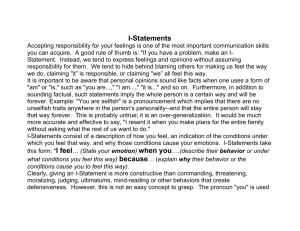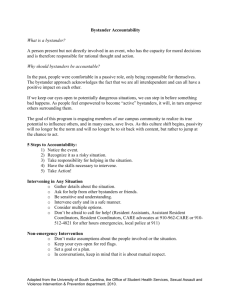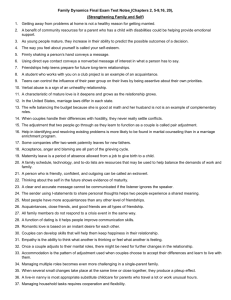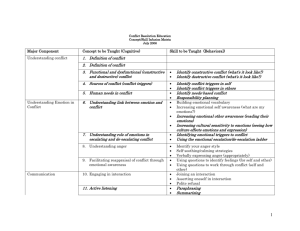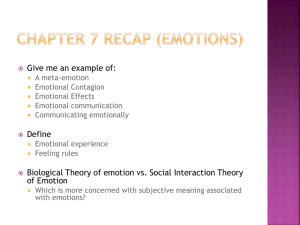Definition of I
advertisement
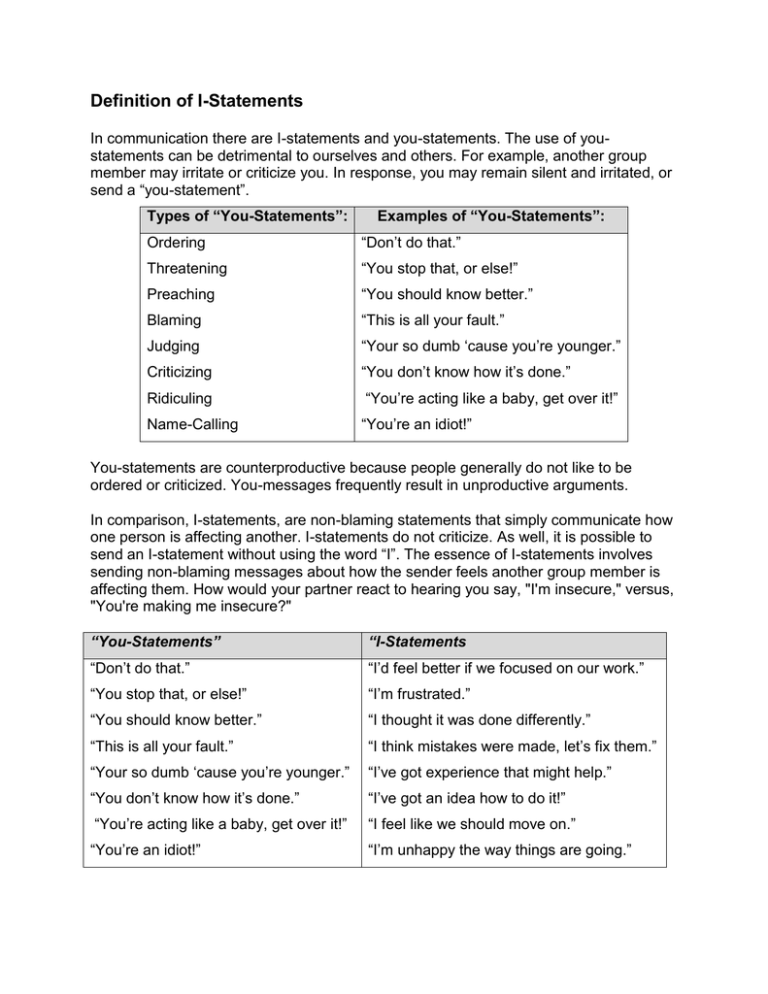
Definition of I-Statements In communication there are I-statements and you-statements. The use of youstatements can be detrimental to ourselves and others. For example, another group member may irritate or criticize you. In response, you may remain silent and irritated, or send a “you-statement”. Types of “You-Statements”: Examples of “You-Statements”: Ordering “Don’t do that.” Threatening “You stop that, or else!” Preaching “You should know better.” Blaming “This is all your fault.” Judging “Your so dumb ‘cause you’re younger.” Criticizing “You don’t know how it’s done.” Ridiculing “You’re acting like a baby, get over it!” Name-Calling “You’re an idiot!” You-statements are counterproductive because people generally do not like to be ordered or criticized. You-messages frequently result in unproductive arguments. In comparison, I-statements, are non-blaming statements that simply communicate how one person is affecting another. I-statements do not criticize. As well, it is possible to send an I-statement without using the word “I”. The essence of I-statements involves sending non-blaming messages about how the sender feels another group member is affecting them. How would your partner react to hearing you say, "I'm insecure," versus, "You're making me insecure?" “You-Statements” “I-Statements “Don’t do that.” “I’d feel better if we focused on our work.” “You stop that, or else!” “I’m frustrated.” “You should know better.” “I thought it was done differently.” “This is all your fault.” “I think mistakes were made, let’s fix them.” “Your so dumb ‘cause you’re younger.” “I’ve got experience that might help.” “You don’t know how it’s done.” “I’ve got an idea how to do it!” “You’re acting like a baby, get over it!” “I feel like we should move on.” “You’re an idiot!” “I’m unhappy the way things are going.” I-statements communicate much more honestly and successfully how one person’s behavior affects another. I-statements tend to be more effective because they discourage defensiveness and encourage the other group member assume responsibility for his/her behavior. I-statements tell the group member that you trust him/her to respect your needs and to handle the situation constructively. I-statements are much less likely to produce an argument. They tend to facilitate honesty, openness and more cordial relationships within the group.

